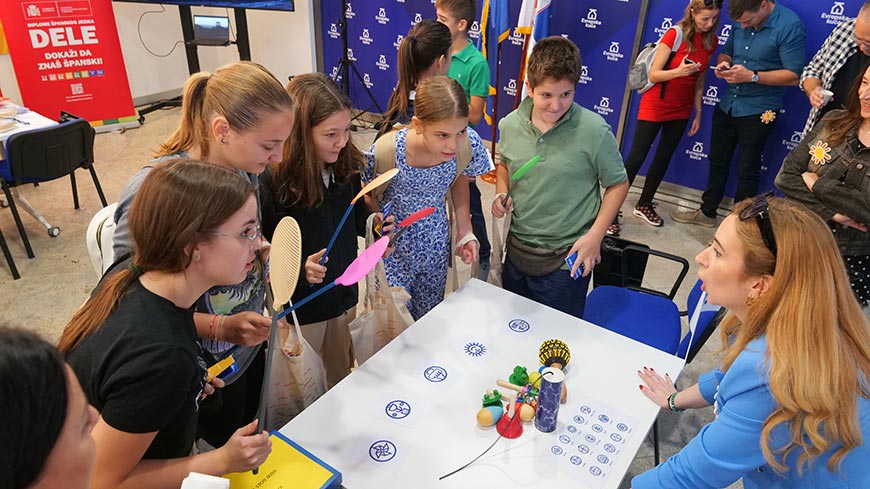On the European Day of Languages, we can all better appreciate what it means to be European and celebrate our unity in diversity.
It is no coincidence that as early as 1599, Mikalojus Daukša, the publisher of the first books in Lithuanian, wrote in his "Postilė" chapter The Preface Unto Benevolent Reader, "It is not by the fertility of the land, nor by the diversity of the clothes, nor by the beauty of the country, nor by the strength of the cities and castles that nations live, but mainly by preserving and using their language, which increases and preserves unity, harmony and brotherly love. Language is the common bond of love, the mother of unity, the father of citizenship, the guardian of the state." While calling for the promotion and preservation of one's mother tongue, he also spoke respectfully of other languages.
These words of a humanist Catholic priest express the same values that led the Council of Europe to launch the European Day of Languages on 26 September 2001.
Linguistic diversity, from which a remarkable cultural diversity springs, is the foundation of today's Europe. We are unique because we pay attention to each language, to its preservation, to its dissemination in the public sphere. Respect for all languages, even the smallest ones, ensures our communion and keeps alive the project of European unity, as today's events across Europe show.
Above all, Europe's schools, universities, educational and public spaces are filled every day with a wonderful polyphony. Each one of us enjoys the sound of our mother tongue. Each of us is eager to learn to speak other languages too.
Finally, the European Day of Languages is also a celebration of democracy, freedom and solidarity. By understanding each other better, we are better able to find common solutions and to build a common future in which everyone matters, because everyone enriches the Europe of our birth. Let us cherish this gift of linguistic and cultural diversity, not only by cherishing our mother tongue but also by learning other languages!


